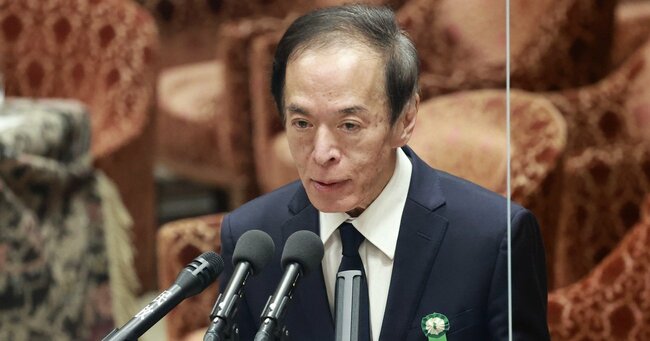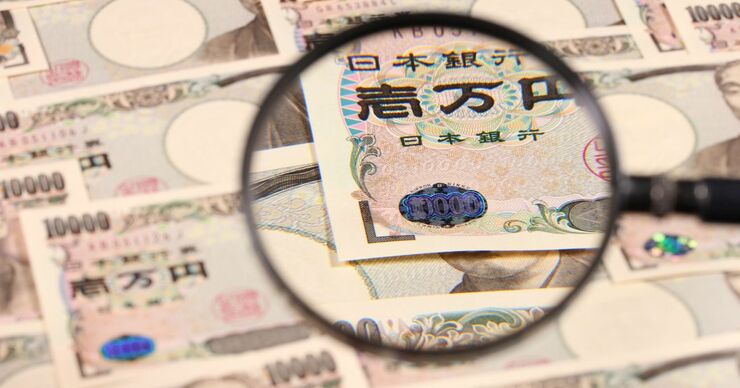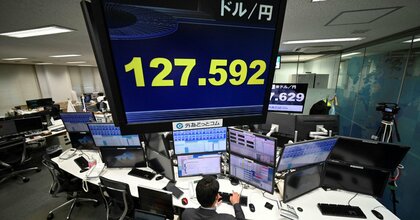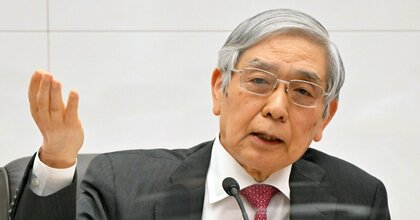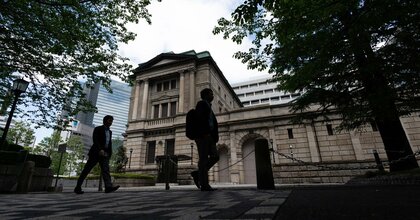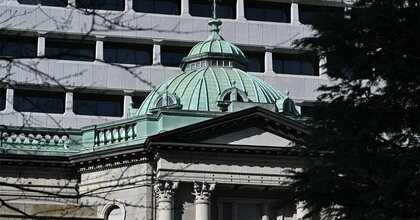Originally published in Japanese on Feb. 17, 2023
‘Theory and practice’
“Neither the Ministry of Finance nor the BOJ want to take responsibility for ending monetary easing,” said a former senior official in the Abe administration. “So they’ll have an academic do it.”
Ueda graduated from the University of Tokyo with a bachelor of science and studied with renowned economist Stanley Fisher at the Massachusetts Institute of Technology (MIT) in the U.S. Fisher's other students include Ben Bernanke, a former chair of the U.S. Federal Reserve, Lawrence Summers, a former U.S. Treasury Secretary, and other faces in the global finance. Looking at other countries, most central bank governors have an academic background.
Moreover, Ueda has on-the-job experience, having served as a member of the BOJ’s Policy Board. Those close to Kishida pointed to both “theory and practice” as the reason for Ueda’s selection.
“Finance is an evolving creature, and anything can happen,” said the aforementioned analyst. “That’s why, as much as possible, theoretical explanations are needed. Ueda’s the one who can do that.”
Kishida also spoke about what he wanted in the new governor at the lower house Budget Committee on Feb. 8.
“They must be highly capable of communicating with and listening to domestic and overseas market participants.”
This statement also indicates that Ueda was a person of interest at the time. Kishida began considering candidates to be the next governor six months ago. The process started with a list of qualified options that was gradually whittled down.
Shifting target
Those involved in narrowing that list included Kishida, Deputy Chief Cabinet Secretary Seiji Kihara, who has contacts in the City, the financial center of the U.K., and Takashi Shimada, Kishida’s top aide.
There was also one more key figure: Yoichi Miyazawa, Kishida's cousin and chairperson of the ruling Liberal Democratic Party’s Research Commission on the Tax System. “The final decision will be made by the prime minister and the chair of the tax commission,” said a senior LDP official before Ueda had been chosen. Miyazawa is a former Finance Ministry official with a background in finance, and is said to be close with Nobuo Inaba, a former BOJ executive director who is now the chair of national broadcaster NHK. Some speculated that the appointment of the BOJ governor and the NHK chair were linked.
Masayoshi Amamiya, the current BOJ deputy governor, had been considered to be a strong candidate to be the next central bank chief. However, because he had supported incumbent Governor Haruhiko Kuroda, “it would be impossible for him to carry out his duties while engaging in self-verification,” said a financial expert. Amamiya himself had no intention of taking the job, and by late January, senior administration officials could say with some certainty that the next governor would be academic.
However, the appointment of the next BOJ governor is a politically sensitive issue that cannot be separated from Abenomics, the economic program of former Prime Minister Shinzo Abe. When Abe returned to power in 2012, he set “ending deflation” as his top priority. The change of BOJ governors from Masaaki Shirakawa to Kuroda symbolized the policy shift.
At that time, the outgoing Shirakawa and Abe issued a joint statement called the accord, in which the BOJ clearly said that it would implement monetary easing and wrote that the price stability target is 2%. Minutes recently released by the BOJ reveal that Shirakawa expressed his concerns to Abe about the creation of this accord.
“A loss of fiscal discipline would be counterproductive to price stability. It’s an extremely serious issue that will come back to the government itself.”
The price target was considered impossible to set a price target itself because prices in Japan are determined by the price of crude oil. The consumer price index excluding fresh food for Tokyo in January was 4.3% year-on-year, according to the Ministry of Internal Affairs and Communications. It was the highest level in 41 years and 8 months, but as it stems from high energy prices and a weak yen, it is squeezing people’s daily lives.
A decade after the price target was set, Japan’s outstanding government bonds amount to 1 quadrillion yen ($7.4 trillion). The BOJ holds about 564 trillion in Japanese government bonds, more than 50%. Ueda’s main mission is to develop an exit strategy that addresses this situation.
Moreover, there is still concern that a sudden change in course could trigger not only economic, but political turmoil. Last May, disagreement emerged between Abe, a proponent of active spending, and Kishida, who favors fiscal consolidation. It was at this time that Abe called the BOJ a “subsidiary of the government.”
Political tensions
The engine of Abenomics fell silent when Abe was killed. However, the Abe faction, the largest intraparty faction in the LDP, is united by “Abe’s legacy.” A major shift in Abenomics could trigger chaos within the party. Koichi Hagiuda, the leader of the Abe faction and chairperson of the Policy Research Council, also fired a warning shot at Ueda in an NHK program on Jan. 12.
“Reforms are needed while continuing the current policy (of monetary easing).”
Ueda seems to understand this. His comments upon learning that he would be named as the candidate for the governorship were extremely political.
“Monetary policy depends on the current state of the economy and prices, and especially the outlook. We need to operate on this basis. I believe that the BOJ's current policy is appropriate.”
In other words, Kishida's goal in appointing the next BOJ governor was to achieve an ambiguous landing point of neither proceeding nor reversing the extraordinary monetary easing that is at the core of Abenomics. He described the two deputy governors who will flank Ueda as “the strongest team.” Shinichi Uchida, 60, supported Kuroda as a BOJ executive director and is familiar with the Kuroda era. Ryozo Himino, 62, is a former head of the Financial Services Agency and an expert in international finance.
On Feb. 14, the government presented the Diet with its nominations to lead the BOJ. Kishida managed to land the most difficult appointment, which could have sunk his administration. However, escaped the wrath of the market only to face that of the Abe faction in his own party.
(Originally written in Japanese by Kenji Goto, translated and edited by Connor Cislo)

